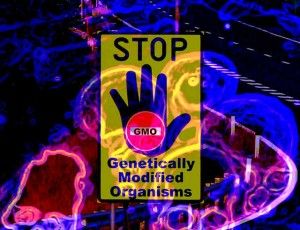California’s Prop. 37 is not stricter food regulation
By Colin A. Carter
Californians will soon vote on Proposition 37, which requires that genetically modified (GM) food to be labeled in food stores throughout the state. Supporters argue that mandatory labeling would offer consumers greater choice and provide them with more information on the content of the foods they eat. How can anyone argue with such a simple and compelling claim that Prop. 37 will give us more information on food content?
Well, suppose the message isn’t true because the fine print of the proposed mandatory food labeling regulations would result in a much different outcome than promised. The most likely outcome would be a market where food category choice decreases under Prop. 37, rather than increases; and the added labeling information would be very imprecise and downright confusing to most consumers.
Prop. 37 would introduce a double standard for testing for GM purity in organic versus non-organic foods, which should be a huge red flag to voters. The organic industry helped write Prop. 37, and it exempted organic food from the very type of mandatory testing it wants to impose on other food suppliers.
If Prop. 37 passes, organic food may contain GM without violation of the new regulation. But non-organic food would have to comply with an impractical zero percent tolerance.
Suppose the lawyers behind Prop. 37 test two boxes of breakfast cereal, one box “organic” and one labeled as “non-GM.” If the tests come back showing each box has an identical low-level trace of GM (say due to a low amount of canola mixed in with wheat), then the lawyers can go after the supplier of the non-GM cereal, but the organic supplier is exempt.
Higher costs
Consumers who have no interest in GM warning labels will face higher food bills. And those who want to avoid buying GM food will not be better informed.
There are so many exemptions (such as organic, restaurant food, dairy products, etc.) that consumers will not know what percent GM ingredients they are eating if it is organic, a dairy product or restaurant food. At the same time, many food products will end up carrying a GM warning label in case they might have a trace amount of GM. How does such a regulation give consumers a better option for avoiding GM? The answer is that it does not.
Prop. 37 is not about stricter food regulations. Instead, it is about improving business opportunities for some of those behind the initiative.
Consumer activists, lawyers and organic-food groups are behind the initiative; while agribusiness, food manufactures and most retailers are opposed. If implemented, Prop. 37 would constitute the first mandatory GM labeling law in the United States. Similar attempts to pass mandatory GM labeling laws in other states have failed.
Voluntary labeling
Voluntary labeling is a much better solution for those consumers who want more practical information on the content of their food and they are willing to pay for it.
In the U.S. market where GM crops (such as corn, soybeans, canola and sugar beets) are common, zero tolerance for commingling with non-GM is just is not practical and is not even met today by the organic food industry. In fact, U.S. organic food regulations for processed foods require that the food contain at least 95 percent certified organic ingredients — a 5 percent tolerance. Why didn’t the organic industry use their own 5 percent standard for accidental contamination when Prop. 37 was drafted?
Other countries truly interested in mandatory labeling have not taken such an unrealistic zero tolerance approach as Prop. 37. In the European Union, the threshold is 0.9 percent for adventitious presence of GM, which is roughly the level used in California today by voluntary “GM free” labeling schemes such as the Non-GMO Project, a verification process organized by food retailers such as Whole Foods Market.
In Japan, a country much more averse to biotech foods than the United States, the legal tolerance level for accidental presence of GM ingredients in non-GM food is 5.0 percent of the top three ingredients. As a result of a practical labeling scheme, the Japanese consumer can purchase non-GM products, an option that would all but disappear with Prop. 37 in California.
If passed, the full economic effects of Prop. 37 are uncertain. But there is little doubt that the measure will soon end up in domestic and international courts as it would exclude certain foods from the California market due to the zero-tolerance criterion. Federal law, not state law, governs international trade in America.
Food manufacturers and retailers will be unwilling to provide non-GM products because of the litigation it would invite and the difficulty associated with obtaining non-GM ingredients that meet the zero percent tolerance. As a consequence, Prop. 37 would result in many products on the food shelf carrying a GM warning label.
In the breakfast cereal aisle, consumers’ choice would be reduced to either organic corn flakes or corn flakes labeled as possibly containing GM. It might get to the point where there are so many products with GM labels that most consumers would just ignore the labels because they would be everywhere.
Colin A. Carter is a professor of agriculture at the University of California, Davis, and the director of the Giannini Foundation of Agricultural Economics.
Related Articles
Can Kashkari win?
No question Neel Kashkari has a tough road ahead in his battle to defeat Gov. Jerry Brown in the November
Attorney for plaintiffs in bullet-train lawsuit suggests way out
Michael J. Brady, the Redwood City attorney for Kings County and other parties suing the California High-Speed Rail Authority, offers
Good side of Maldonado comedy
Everyone’s getting a hearty horse laugh over the Abel Maldonado lieutenant-governor comedy. The latest episode in “As the Capitol Turns”:





